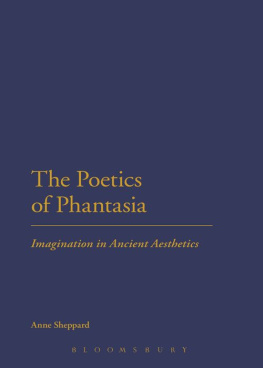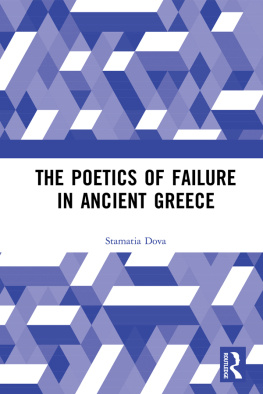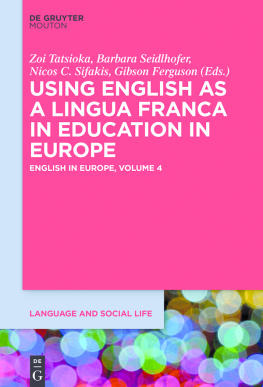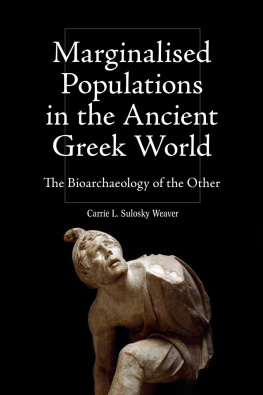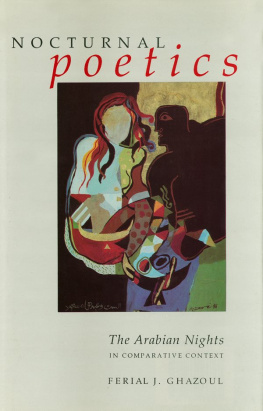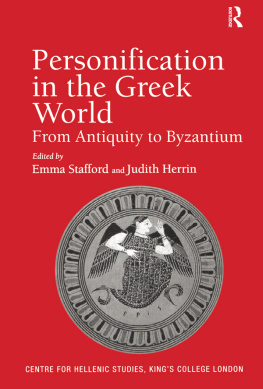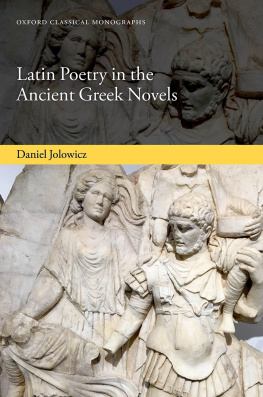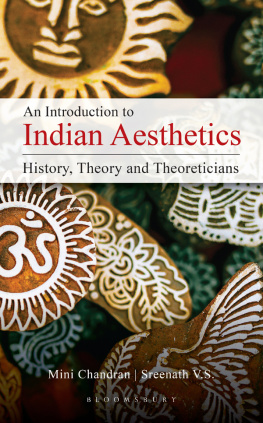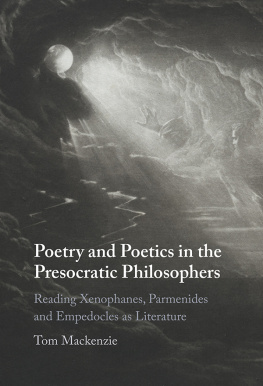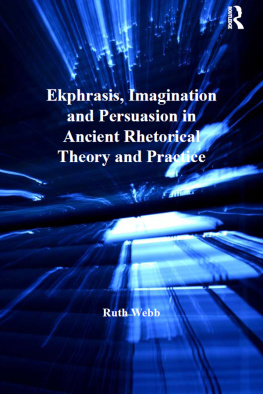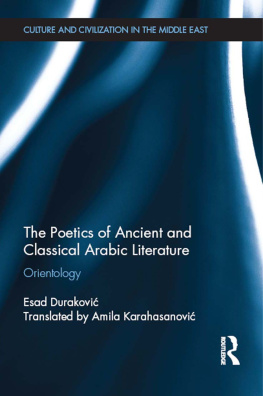
Contents
Some parts of this book have previously been published in a different form. I am grateful to Ashgate Publishing for permission to re-use material first published in my article, Phantasia and Inspiration in Neoplatonism in M. Joyal (ed.), Studies in Plato and the Platonic Tradition. Essays Presented to John Whittaker (Aldershot: Ashgate 1997) 20110; to Prof. Peter Green, editor of Syllecta Classica , for permission to re-use material first published in my article, Phantasia and Mathematical Projection in Iamblichus in H. J. Blumenthal and J. Finamore (eds), Iamblichus the Philosopher. Syllecta Classica 8 (1997) 11320; to Prof. Michael Erler and Prof. Clemens Zintzen, co-editors of the series Beitrge zur Altertumskunde , for permission to re-use material first published in my article, Image and Analogy in Later Neoplatonism in T. Kobusch and M. Erler (eds), Metaphysik und Religion. Zur Signatur des sptantiken Denkens (Munich and Leipzig: K.G. Saur 2002) 63947; and to Mohr Siebeck for permission to re-use material published in my essay, Phantasia in De Insomniis in D. A. Russell and H-G. Nesselrath (eds), On Prophecy, Dreams and Human Imagination: Synesius , De insomniis (Tbingen: Mohr Siebeck forthcoming).
This book has grown out of two long-running and converging strands in my intellectual life. On the one hand, I have enjoyed works of the imagination ever since I can remember and, since I first became interested in philosophy, have been fascinated by the question why such works hold so much appeal for us. My Oxford DPhil on the response of the Neoplatonist philosopher Proclus to Platos criticisms of Homer (published as Sheppard 1980) raised in my mind a number of further questions which it was not possible to answer at that time; one of these was a question about Proclus use of the word phantasia . Subsequently, writing an introductory book on aesthetics, entitled Aesthetics. An Introduction to the Philosophy of Art (Sheppard 1987), led me to read some modern philosophical work on imagination and to think more broadly about the topic. At the same time my work on Proclus had aroused my interest in the use of allegory and symbolism in art and literature. Two conversations with distinguished scholars were particularly influential: E. R. Dodds lent me a copy of Louis MacNeices book, Varieties of Parable , and when I talked to my undergraduate tutor, Margaret Hubbard, about my doctoral research, she said to me, At some stage this has to be confronted with Chapter 9 [of Aristotles Poetics ].
Rather than attempting a study of the concept of imagination in general, I have chosen to focus on the ancient concept of phantasia and its uses in aesthetic contexts. My concentration on these particular uses of phantasia has allowed me to address some of the issues about allegory, symbolism and the nature of poetic truth which E. R. Dodds and Margaret Hubbard first stimulated me to consider. I made a preliminary attempt to discuss some of the underlying questions in an article on The Role of Imagination in Aesthetic Experience, published in the Journal of Aesthetic Education in 1991 (Sheppard 1991b) and have also published papers on various aspects of phantasia in Neoplatonism, some of which I have drawn on when writing this book.
The book has been a long time in gestation and I have benefited from the opportunity to present material relating to it on a number of occasions. I have received helpful comments from audiences at: Royal Holloway, University of London; the University of Leiden; the University of Manchester; the annual conference of the British Society of Aesthetics; University College, Cork; the London Roman Art seminar; a workshop on Arabic poetics at St Johns College, Oxford; the University of Murcia; the Universit catholique de Louvain; and the London Aesthetics Forum. I have also learned a great deal over the years from my colleagues both at Royal Holloway and in the wider scholarly community and from my students. Some individuals are thanked in the chapter notes for advice on particular points, or for particular references. In addition to these I should like to thank a number of people who have suggested books and articles to me, shared their own work with me, answered questions or made comments on my project as it developed: Cosmin Andron, Franco Basso, Oleg Bychkov, Victor Caston, Stavroula Kiritsi, Peter Lautner, Dominic OMeara, Jim Porter, Donald Russell, David Sedley, Ineke Sluiter, Carlos Steel, Suzanne Stern-Gillet, Jeremy Tanner, Tony Woodman, my daughter Sarah, and the anonymous referees who commented on my proposal for Bloomsbury Academic. I should also like to thank my family for their continual support and encouragement. Responsibility for omissions and errors rests of course with me.
Anne Sheppard
September 2013
A list of the translations of Greek and Latin texts used is given in the Bibliography. I have also given the name of the translator(s) in the text of the book, the first time I quote from a translation. All unattributed translations are my own.
I list here the ancient writers and thinkers discussed in the book, in chronological order. Many dates are approximate; in some cases we know an authors date of birth, or date of death, but not both, while in others we know only the period at which they were active. I have used a question mark to indicate when dating is uncertain, or disputed, and have referred to two works, the essay On the Life and Poetry of Homer , wrongly attributed to Plutarch, and the Anonymous Prolegomena to Platonic Philosophy , by their titles alone since the names of their authors are unknown. I have not included the scholia to Homer in this list as they are a compilation of material from many different dates.
| Homer | ? Eighth century BC |
| Hesiod | c.700 BC |
| Pindar | c.518 BC c.438 BC |
| Gorgias | c.485 BC c.380 BC |
| Democritus | Fifth century BC (born c.460 BC ) |
| Euripides | Fifth century BC (died 407/6 BC ) |
| Aristophanes | Fifth to fourth century BC (died c.386 BC ) |
| Andocides | c.440 BC c.390 BC |
| Lysias | Fifth to fourth century BC (died c.380 BC ) |
| Plato | c.429 BC 347 BC |
| Aeschines | c.397 BC c.322 BC |
| Demosthenes | 384 BC 322 BC |
| Aristotle | 384 BC 322 BC |
| Epicurus | 341 BC 270 BC |
| Chrysippus | c.280 BC 207 BC |
| Philodemus | c.110 BC c.40/35 BC |
| Lucretius | c.94 BC c.55/1 BC |
| Demetrius, On Style | ?First century BC |
| Dionysius of Halicarnassus | First century BC |
| Ovid | 43 BC AD 17 |
| Philo of Alexandria | c.20 BC c. AD 40 |
| Longinus | ?First century AD |
| Quintilian | c. AD 35 c. AD 95 |
| Josephus | First century AD (born AD 37/8) |
| Aetius | First century AD |
| Dio Chrysostom | c. AD 40/50 c. AD 110 |
| Plutarch of Chaeronea | c. AD 50 c. AD 120 |
| On the Life and Poetry of Homer | ?Second century AD |
| Sextus Empiricus | Second century AD |
| Aelian | AD 165/70 AD 230/5 |
| Philostratus | c. AD 172 AD 244/9 |
| Philostratus the Lemnian | Third century AD |
| Diogenes Laertius | Third century AD |
Next page
